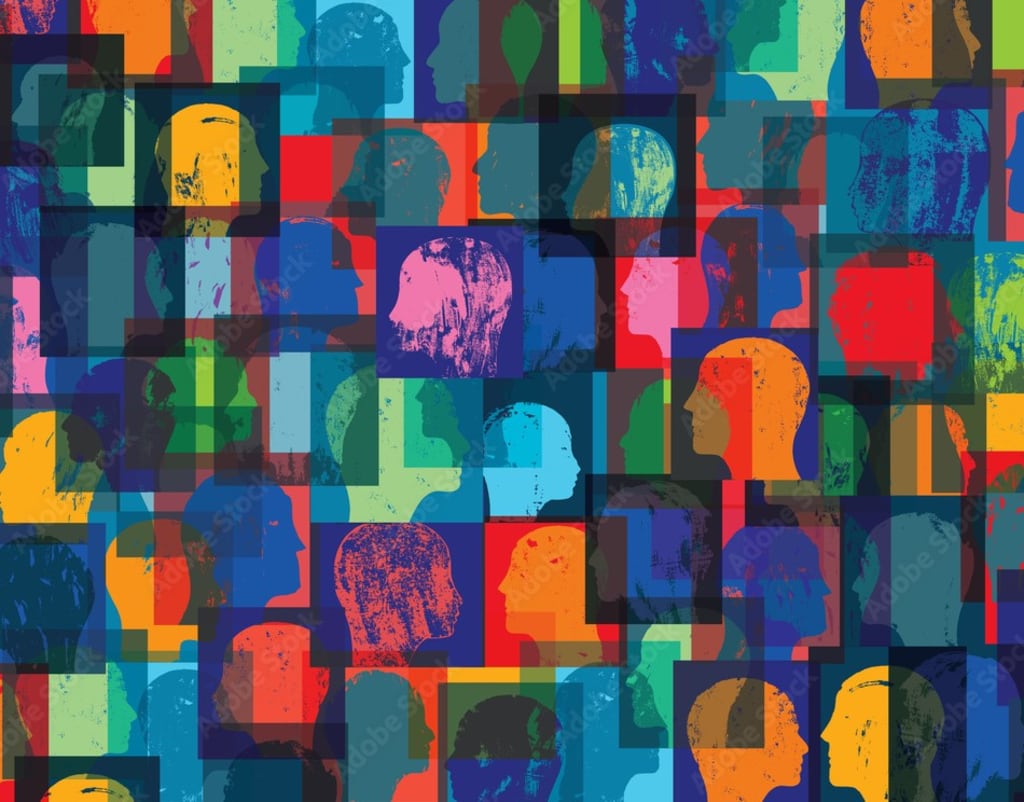Gender Bias in Healthcare
Addressing an Unsettling Reality

Introduction
Gender bias is a pervasive issue that permeates various aspects of our society, from the workplace to sports, education, and even how we raise our children. While it is commonly acknowledged in these areas, there is another domain where gender bias often goes unnoticed—the healthcare system. In this article, we will shed light on the existence of gender bias in healthcare and explore its profound implications. The evidence presented will underscore the urgent need for change and a more inclusive approach to patient care.
Table of Contents
1. The Gender Disparity in Diagnosing Chronic Medical Illnesses
- Delayed Diagnosis: A Troubling Reality
- Underdiagnosed and Undertreated Conditions
2. Gender Bias and Women's Experience of Pain
- The Challenge of Being Heard and Believed
- Stereotypes and the Perception of Pain
3. Gender Bias in Treatment Approaches
- Disparities in Pain Management
- Historical Context: The Origins of Gender Bias in Pain Perception
4. The Impact on Women's Health and Well-being
- Chronic Pelvic Pain: A Personal Account
- Emotional Toll and Relationship Strain
5. Addressing Gender Bias in Healthcare
- Empathy, Listening, and Believing
- Advocacy and Education
6. Conclusion
7. FAQs
1. The Gender Disparity in Diagnosing Chronic Medical Illnesses
Delayed Diagnosis: A Troubling Reality
Studies have revealed a concerning trend: women face significant delays in receiving a diagnosis for chronic medical illnesses compared to men of similar ages. In a 2009 Danish study, it was found that women, on average, waited four years longer than men to be diagnosed with the same condition. When it comes to cancer diagnoses, the delay for women is two years longer than for men.
Underdiagnosed and Undertreated Conditions
The consequences of delayed diagnosis are substantial. Conditions such as diabetes, stroke, cancer, and heart attacks are often underdiagnosed and undertreated in women. Shockingly, women are twice as likely as men to die within a year following a heart attack. This gender bias poses a grave threat to women's health and well-being.
2. Gender Bias and Women's Experience of Pain
The Challenge of Being Heard and Believed
Gender bias not only affects the diagnosis of medical conditions but also shapes the way healthcare practitioners perceive and respond to women's pain. The capacity of physicians and other healthcare professionals to truly listen and believe their female patients is compromised. This issue becomes especially evident when it comes to pain management.
Stereotypes and the Perception of Pain
Stereotypes that portray men as tough and women as emotional cloud the judgment of healthcare practitioners. Men are often over-treated for pain, leading to inadvertent risks of substance misuse. On the other hand, doctors tend to minimize or dismiss a woman's pain if she appears stoic or attribute it to emotional factors. This biased perception of pain is deeply rooted in history and continues to hinder women's access to appropriate care.
3. Gender Bias in Treatment Approaches
Disparities in Pain Management
One alarming finding reveals that when men complain of pain, they are more likely to receive appropriate pain medication. However, when women report pain, they are more likely to be given sedatives instead. This discrepancy in treatment approaches based on gender is a distressing reality that must be addressed.
Historical Context: The Origins of Gender Bias in Pain Perception
The belief that women are overly emotional when it comes to pain traces back to ancient Greece when the uterus was thought to be the source of all hysteria. The term "hysteria" itself originates from the Greek word for uterus. The surgical removal of the uterus, called a hysterectomy, is a term closely associated with this historical bias. Such deeply ingrained biases undermine the credibility of women's pain experiences and deny them the care they deserve.
4. The Impact on Women's Health and Well-being
Chronic Pelvic Pain: A Personal Account
As a practicing gynecologist, I have witnessed firsthand the detrimental impact of gender bias on women's lives. Chronic pelvic pain is one of the conditions I frequently encounter. Painful sex, a common yet overlooked problem, severely affects the intimate lives of women. The journey to find answers often involves facing dismissive attitudes and a lack of recognition for their pain.
Emotional Toll and Relationship Strain
When women's pain is consistently disregarded or minimized, it can lead to significant emotional suffering. Women may experience strained relationships, develop depression, and forego their dreams of having children. The importance of being believed and validated cannot be overstated, as it directly influences the accuracy of diagnoses and the timely implementation of effective treatments.
5. Addressing Gender Bias in Healthcare
Empathy, Listening, and Believing
To combat gender bias in healthcare, it is crucial for healthcare providers to prioritize empathy, active listening, and belief in their patients. Creating a safe space where women can openly discuss their experiences and concerns is essential. By doing so, practitioners can establish trust and improve the overall quality of care.
Advocacy and Education
In addition to healthcare providers, patients themselves must play an active role in challenging gender bias. Educating oneself about one's own health conditions, seeking out information, and maintaining detailed records can empower women to advocate for their well-being. If patients feel unheard or dismissed, it is crucial to seek alternative providers who will prioritize their concerns.
Conclusion
Gender bias in healthcare is a distressing reality that must be acknowledged and addressed. The disparities in diagnosing chronic medical illnesses, the challenges women face in having their pain heard and believed, and the impact on their health and relationships are critical issues that demand urgent attention. By fostering empathy, dismantling stereotypes, and promoting a patient-centric approach, we can pave the way for a more equitable and inclusive healthcare system.
FAQs
Q1: How can we overcome gender bias in healthcare?
A1: Overcoming gender bias in healthcare requires a multi-faceted approach. Healthcare providers must prioritize empathy, active listening, and belief in their patients' experiences. Patients themselves should educate and advocate for their own health, seeking alternative providers if necessary.
Q2: How does gender bias affect the diagnosis of chronic medical conditions?
A2: Gender bias results in delayed diagnosis of chronic medical conditions for women, compared to men with similar symptoms. This delay leads to underdiagnosed and undertreated conditions, posing serious health risks.
Q3: What can women do if they feel their pain is being dismissed?
A3: It is essential for women to be their own advocates. They should educate themselves about their conditions, maintain records, and seek alternative providers who prioritize their concerns if they feel unheard or dismissed.
Q4: How does gender bias impact women's emotional well-being?
A4: When women's pain and concerns are consistently disregarded, it can lead to emotional suffering, strained relationships, and even depression. Being believed and validated is crucial for their overall well-being.
About the Creator
Tajamul Hassan
An accomplished professional in the field of Management Sciences, Nutrition, and Health and Fitness. Over a decade of extensive experience in development as well in Health Sector. Dedicated to improving people's lives.






Comments
There are no comments for this story
Be the first to respond and start the conversation.